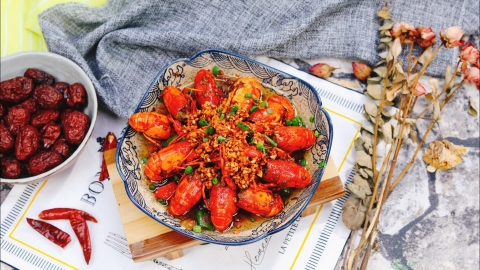Can I eat crayfish while taking traditional Chinese medicine?
Generally speaking, it is not recommended to eat crayfish while taking traditional Chinese medicine (TCM). The detailed explanation is as follows:

Crayfish belongs to seafood and has a fishy taste. Some types of Chinese herbal medicine should be avoided with fishy or gamey foods, as this may interfere with the effectiveness of the herbs. Certain tonic herbs, such as ginseng and astragalus, may have their qi-enhancing effects compromised if consumed alongside crayfish. Additionally, if one is taking heat-clearing herbs, such as coptis, scutellaria, or phellodendron, eating crayfish may exacerbate internal heat symptoms, counteracting the cooling effects of the medicine.
Furthermore, crayfish is relatively warming in nature and often prepared with spicy seasonings. For individuals with spleen and stomach weakness, consuming crayfish during TCM treatment aimed at regulating the spleen and stomach may increase the burden on these organs, potentially leading to symptoms such as indigestion, bloating, or abdominal pain. Therefore, it is advisable to avoid eating crayfish while taking Chinese herbal medicine to ensure its effectiveness and safety.
During the period of taking Chinese herbal medicine, patients should follow medical advice, observe dietary restrictions, and avoid consuming raw, cold, spicy, stimulating, or greasy foods to ensure optimal therapeutic effects and recovery from illness.




